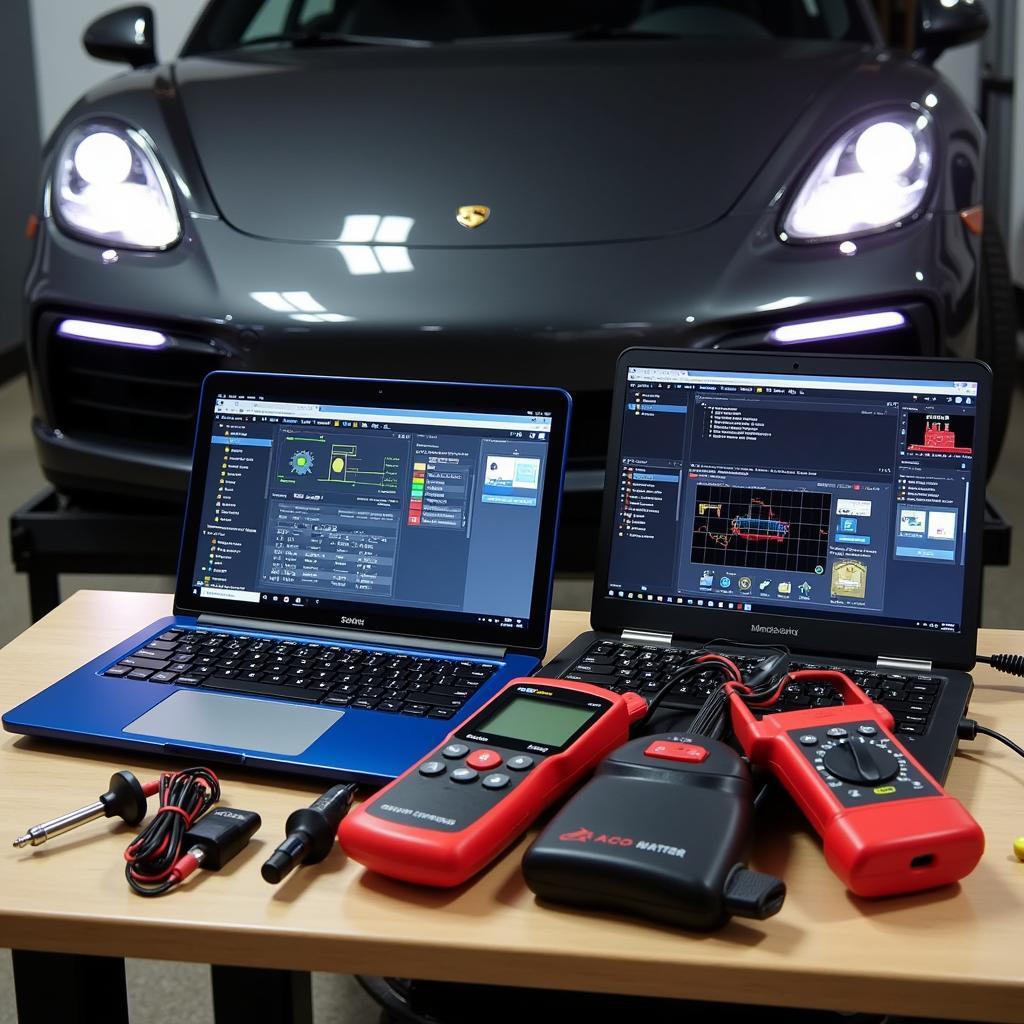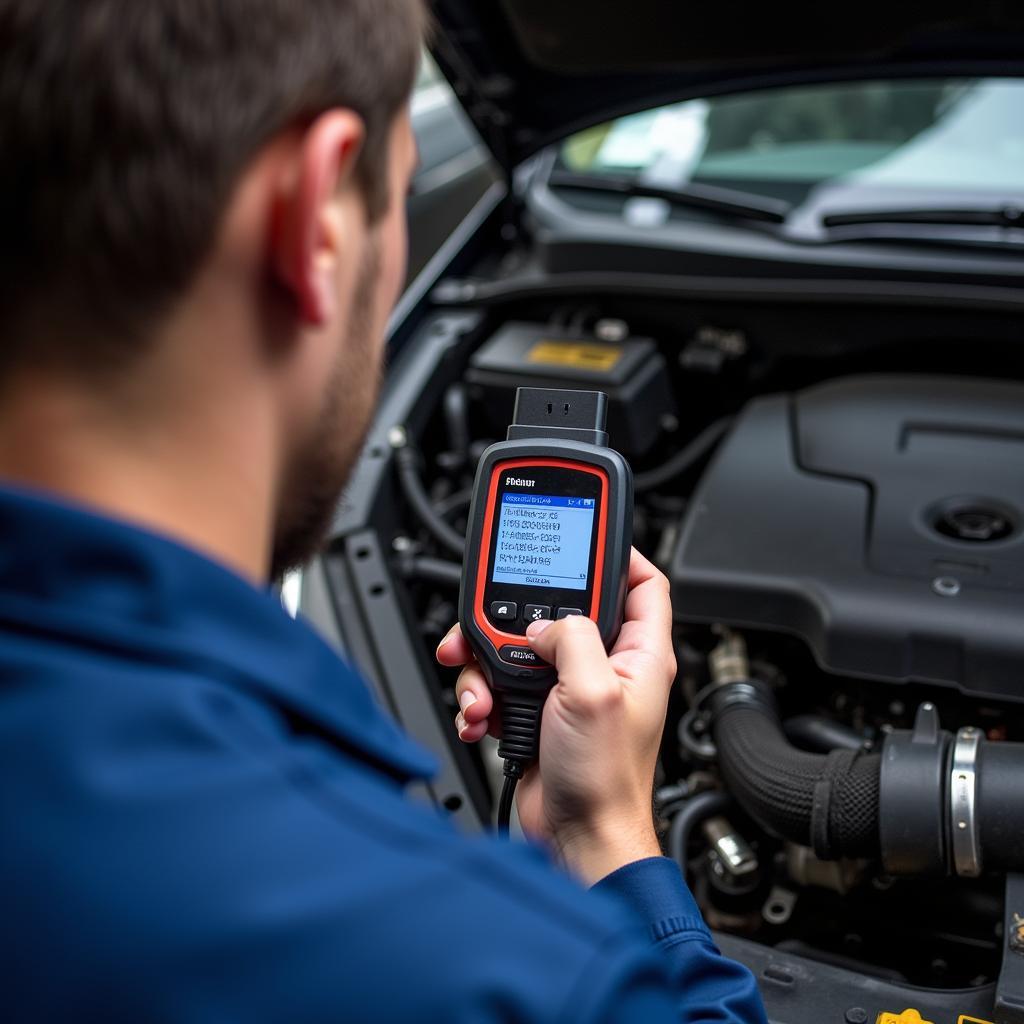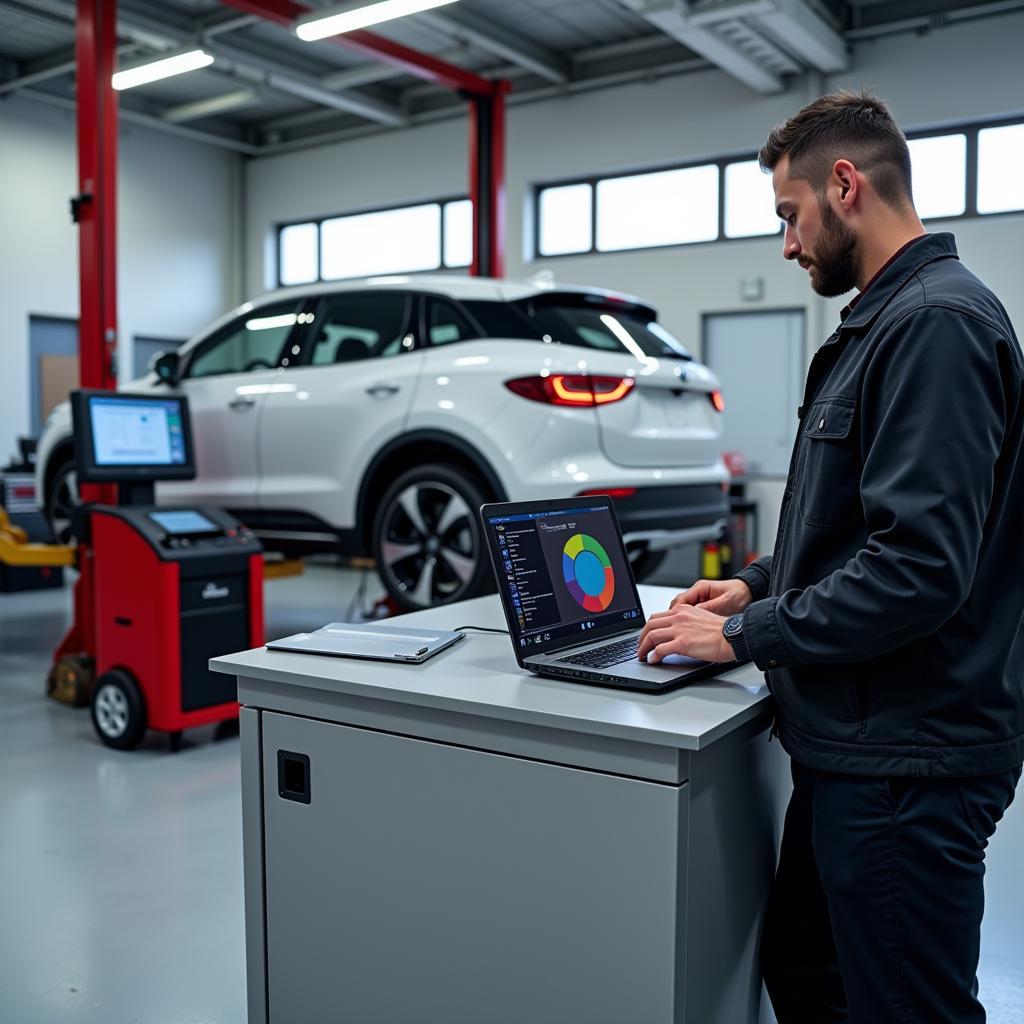Car diagnostics have become an indispensable part of vehicle maintenance and repair. But what exactly is a “Car Diagnostic Derby” and why should you care? While not a literal derby with cars racing, the term reflects the competitive landscape of diagnostic tools and the ever-evolving technology behind them. This article delves into the world of car diagnostics, exploring its importance, the tools involved, and how it can save you time, money, and unnecessary headaches.
 Car Diagnostic Tools and Software
Car Diagnostic Tools and Software
The Engine Light Enigma: Why Car Diagnostics Matter
Remember that dreaded moment when your car’s “check engine” light decides to make an unwelcome appearance? It’s like a cryptic message from your vehicle, leaving you wondering about the culprit behind the glowing symbol. This is where car diagnostics come into play.
Car diagnostics involve using electronic tools to communicate with your car’s computer system, retrieving valuable data about its health and performance. This data is crucial for identifying the root cause of problems, ranging from minor sensor malfunctions to more serious engine issues.
Unveiling the Toolbox: Essential Car Diagnostic Equipment
The world of car diagnostics boasts an impressive array of tools designed to pinpoint problems with pinpoint accuracy. Here are some key players:
- OBD-II Scanners: These handheld devices plug into your car’s OBD-II port (usually located under the dashboard) and read diagnostic trouble codes (DTCs) stored in the vehicle’s computer.
- Diagnostic Software: For more in-depth analysis, professional-grade software provides detailed information about various vehicle systems, allowing mechanics to interpret data, run tests, and access technical service bulletins.
- Multimeters: These versatile tools measure electrical properties like voltage, current, and resistance, aiding in diagnosing electrical faults in sensors, wiring, and other components.
 Mechanic Using OBD-II Scanner on Car
Mechanic Using OBD-II Scanner on Car
Decoding the Jargon: Understanding Diagnostic Trouble Codes (DTCs)
Think of DTCs as coded messages from your car’s computer. Each code represents a specific problem or malfunction detected within a system. For instance, a code like “P0301” indicates a misfire in cylinder 1.
While DTCs provide a starting point for diagnosis, they shouldn’t be interpreted as a final verdict. Further investigation and testing are often necessary to determine the exact cause and appropriate repair strategy.
The DIY Approach vs. Professional Expertise
The availability of affordable OBD-II scanners has empowered car owners to perform basic diagnostics at home. This can be helpful for understanding minor issues or resetting the check engine light after simple fixes.
However, complex problems often demand the expertise of trained mechanics equipped with advanced diagnostic tools and software. Their knowledge and experience are invaluable for interpreting data, conducting thorough inspections, and recommending the most effective repair solutions.
Car Diagnostics: Your Ticket to a Smoother Ride
In a nutshell, car diagnostics play a pivotal role in modern vehicle maintenance and repair. By providing insights into your car’s inner workings, they enable faster and more accurate diagnoses, leading to:
- Time Savings: Identifying problems quickly reduces the time spent troubleshooting.
- Cost Efficiency: Accurate diagnoses prevent unnecessary repairs and parts replacements.
- Enhanced Safety: Addressing issues promptly ensures your vehicle operates safely and reliably.
- Improved Performance: Resolving underlying problems can optimize your car’s performance and fuel efficiency.
 Modern Car Diagnostic Center
Modern Car Diagnostic Center
Conclusion: Staying Ahead in the Car Diagnostic Derby
The world of car diagnostics continues to evolve at a rapid pace, with advancements in technology and software constantly emerging. By embracing car diagnostics as a vital part of vehicle maintenance, you can stay ahead in the game, ensuring your car receives the care it deserves for miles to come.
FAQs: Your Car Diagnostic Queries Answered
Q1: How often should I get my car diagnosed?
A1: It’s generally recommended to have your car diagnosed at least once a year or as part of your regular maintenance schedule.
Q2: Can I drive my car with the check engine light on?
A2: While driving short distances with the check engine light on might be possible, it’s crucial to get it checked as soon as possible, as it could indicate a potentially serious problem.
Q3: Are all OBD-II scanners the same?
A3: No, OBD-II scanners vary in features and capabilities. Basic scanners read and clear DTCs, while more advanced models offer live data streaming, graphing, and other functions.
Q4: How much do car diagnostic tests cost?
A4: The cost of car diagnostic tests can vary depending on the location, complexity of the problem, and the type of diagnostic equipment used.
Q5: Can car diagnostics detect problems with tires or brakes?
A5: While car diagnostics primarily focus on the engine and related systems, they might detect some issues related to the anti-lock braking system (ABS) or tire pressure monitoring system (TPMS).
For additional information on running diagnostics on your car, explore our comprehensive guide: running diagnostics on car.
Need further assistance with car diagnostics? Contact our expert team via WhatsApp: +1(641)206-8880, or Email: [email protected]. We’re available 24/7 to answer your questions and provide reliable solutions.

Leave a Reply